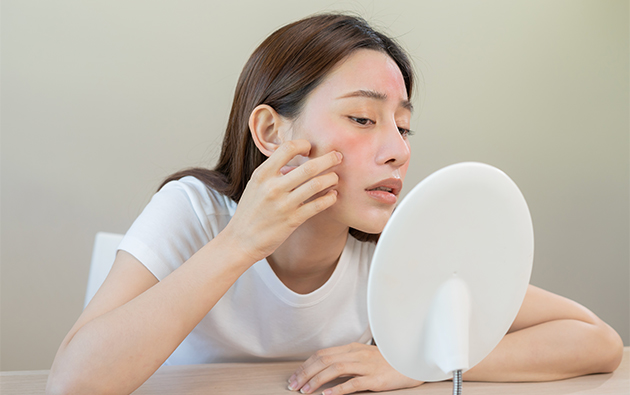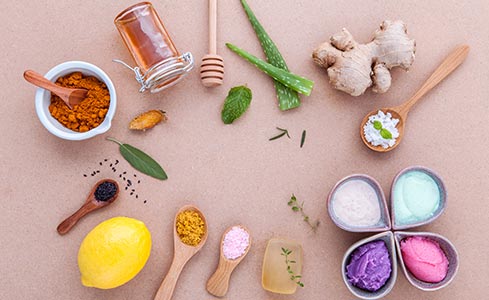
Ah, the teenage years—a time of self-discovery, growth, and... acne. For many teenagers, this skin condition can be a source of frustration and self-consciousness. But fear not! With the right strategies, you can navigate the turbulent waters of teen acne and emerge with clearer, more confident skin. In this comprehensive guide, we'll explore the dos and don'ts of managing teen acne to help you face this common challenge with confidence.
Before diving into the survival guide, it's essential to understand what you're dealing with. Acne is a skin condition that occurs when hair follicles become clogged with oil and dead skin cells. Hormonal changes during adolescence play a significant role in its development. While it may seem like an insurmountable obstacle, rest assured that effective management is within reach.
A consistent skincare routine can work wonders in managing teen acne. Follow these steps:
Cleansing
Use a gentle, sulfate-free cleanser designed for your skin type. Wash your face twice a day, in the morning and before bedtime, to remove excess oil, dirt, and dead skin cells.
Hydration
Apply a non-comedogenic moisturizer to keep your skin hydrated without clogging pores.
Spot Treatment
Use acne-specific treatments, such as anti-acne gels that contain clindamycin and nicotinamide which help fight acne scars and prevent pimples.
Sun Protection
Use sunscreen with at least SPF 30 to protect your skin from UV damage. Look for oil-free or water-based options.
A healthy lifestyle can significantly impact your skin's condition:
Balanced Diet
Consume a diet rich in fruits, vegetables, and whole grains while minimizing sugary and greasy foods.
Hydration
Drink plenty of water to keep your skin well-hydrated and aid in toxin removal.
Exercise
Regular physical activity can help reduce stress and improve overall skin health.
Stress Management
Find healthy ways to cope with stress, such as meditation, yoga, or hobbies you enjoy.
Hands Off
Avoid touching your face to prevent the transfer of dirt and bacteria from your hands.
Popping or Picking on Pimples
The urge to pop pimples can be strong, but resist it at all costs. Popping can lead to scarring, infection, and worsened inflammation.
Overwashing Your Face
Excessive cleansing can strip your skin of natural oils, causing it to produce even more oil. Stick to washing your face twice a day.
Using Harsh or Irritating Products
Avoid skincare products that contain alcohol, fragrances, or harsh chemicals, as they can exacerbate acne and irritate your skin.
Skipping Sunscreen
Even if you're prone to acne, never skip sunscreen. Sun exposure can worsen acne scars and inflammation.
Stressing Over Perfection
Remember, nobody has perfect skin. It's okay to have blemishes and imperfections. Your self-worth goes far beyond your appearance.
Teen acne can be challenging, but it's important to remember that you're not alone in this journey. Following the strategies outlined in this survival guide and using quality topical treatments like AcneStar gel can help you take control of your acne and ultimately achieve clearer, healthier skin. Don’t forget to follow a balanced, healthy diet rich in vitamins, minerals, and antioxidants that help your body fight inflammation and eliminate toxins.
Disclaimer This blog solely intended for the educational/informational/awareness purposes and is not a substitute for any professional medical advice, diagnosis or treatment. Please consult your doctor/healthcare professional before acting on the information provided on the blog. Reliance on any or all information provided in the blog, is solely at your own risk and responsibility. Mankind Pharma Limited shall not be held liable, in any circumstance whatsoever.

Acne is a skin condition that occurs when your hair follicles become plugged with oil and dead skin cells.

it is absolutely imperative to know its type. Acne can be inflammatory or non-inflammatory which further has different lesions, as mentioned below.

Acne starts occurring in teenagers due to an increase in the level of Androgen production. Androgen is a hormone which signals the body to produce more sebum, the oil produced by the sebaceous glands.

Acne is a skin condition that occurs when your hair follicles become plugged with oil and dead skin cells. It often causes whiteheads, blackheads or pimples, and usually appears on the face, forehead, chest, upper back and shoulders. Acne is most common among teenagers, though it affects people of all ages.

Debunk acne myths by following a proper skincare regimen. Taking good care of your skin can help you achieve a glowing and acne-free skin.